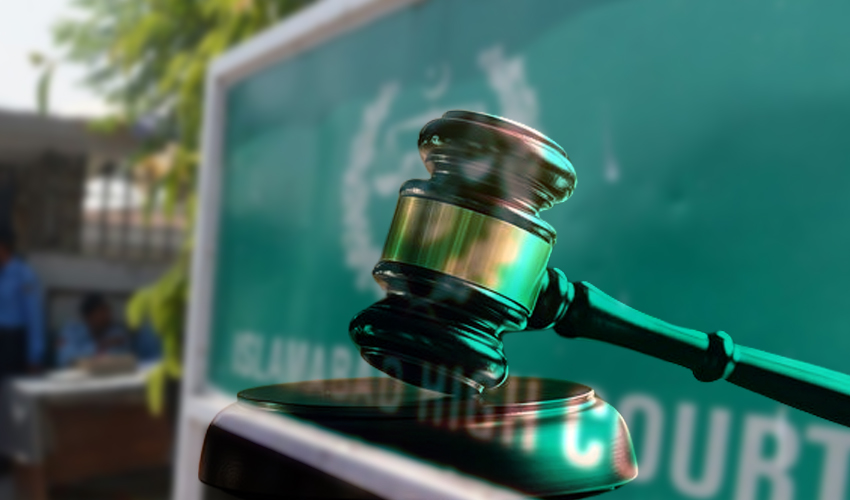The Islamabad High Court expressed frustration over the government's inability to provide a satisfactory explanation for the ongoing internet slowdown across the country.
During a hearing on the matter, Chief Justice Amir Farooq criticized the contradictory statements made by government officials and demanded clarity on the issue that has caused significant disruption, particularly for Pakistan's growing freelance community.
The case, brought forward by petitioners concerned about the prolonged internet issues and the imposition of a firewall, was heard by Chief Justice Amir Farooq. The Ministry of Information Technology's lawyer, however, failed to provide specific details on why the internet speed has slowed down across the country, leading to the chief justice's evident displeasure.
"Why is the internet slow?" asked the chief justice, to which the government could not provide a satisfactory answer. The Ministry of IT lawyer told the court, "I do not have any information about this. No such policy has been made by the Ministry of Information Technology."
Also Read: Pakistan's firewall installation faces challenges amid rapid progress
The assistant attorney general attributed the problem to damage to submarine cables, stating that one cable had been cut and was expected to be repaired by August 28, while a second cable had also been damaged, with repairs expected to take up to a month. "Another message was received at night that another submarine cable has been cut off," he informed the court.
However, the court was not satisfied with this explanation. "The petitioner does not know what is happening to the people who have come to the court? Chief Justice? If the cable has been damaged, who is responsible for fixing it?" asked the CJ.
The PTA's lawyer responded that fixing faulty cables is the responsibility of many companies.
"Why do always Pakistan's cables face such problems?" Chief Justice Amir Farooq questioned, expressing his frustration at the recurrent issue. He further criticized the government's failure to properly inform the public about the cause of the slowdown, saying, "If the cable is cut, why didn't you tell the public?"
He further remarked that a similar request was being heard in the Lahore court too, and no one was accepting responsibility either there or in Islamabad. "If I am not briefed properly, I will not pursue the case," said the PTA lawyer.
Also Read: PTA Chairman blames fiber optic cable failure and VPNs for internet slowdown
The chief justice remarked: "Look at the newspapers from last 10 days, there is a contradiction in the statements of ministers and the PTA chairman. The business community has also been complaining for the past 10 days."
The petitioner’s lawyer, Imaan Mazari, highlighted that certain mobile applications, including WhatsApp, were not functioning properly, affecting features such as photo sharing and voice notes. She argued that these issues were unrelated to the submarine cable damage and suggested that the real problem might lie in the government's attempts to upgrade its monitoring system, a claim that added to the confusion surrounding the issue.
The chief justice also pointed out the economic repercussions of the internet slowdown, emphasizing that many young people rely on freelancing as a source of income, and the disruption has caused significant financial losses. He criticized the government for pushing for digital initiatives such as internet banking while failing to maintain the infrastructure necessary to support these services.
Also Read: Internet slowdown in Pakistan due to use of VPNs: Shaza Fatima
"Leave the other things, the economic loss related to the Internet has happened," Chief Justice Farooq remarked, underlining the broader impact of the internet issues on Pakistan's economy. "You are misleading the people. I don't understand who the people should believe."
In light of the government’s unsatisfactory responses and the contradictory statements from various officials, the Islamabad High Court has summoned the member technical of the Ministry of Information Technology to appear in person at the next hearing on September 3. The court also requested a detailed report on the matter to be presented at that time.



























